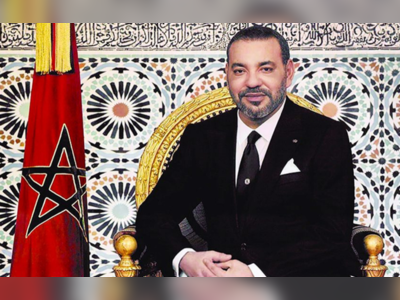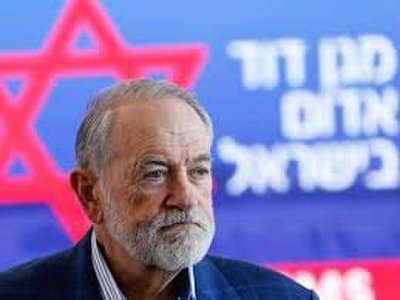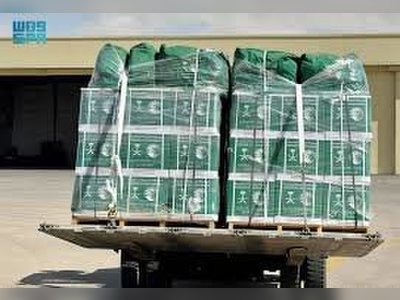
Civilian Deaths Mounted as Secret Unit Pounded “ISIS”
An American strike cell alarmed its partners as it raced to defeat the enemy.
A single top secret American strike cell launched tens of thousands of bombs and missiles against the Islamic State in Syria, but in the process of hammering a vicious enemy, the shadowy force sidestepped safeguards and repeatedly killed civilians, according to multiple current and former military and intelligence officials.
The unit was called Talon Anvil, and it worked in three shifts around the clock between 2014 and 2019, pinpointing targets for the United States’ formidable air power to hit: convoys, car bombs, command centers and squads of enemy fighters.
But people who worked with the strike cell say in the rush to destroy enemies, it circumvented rules imposed to protect noncombatants, and alarmed its partners in the military and the C.I.A. by killing people who had no role in the conflict: farmers trying to harvest, children in the street, families fleeing fighting, and villagers sheltering in buildings.
Talon Anvil was small — at times fewer than 20 people operating from anonymous rooms cluttered with flat screens — but it played an outsize role in the 112,000 bombs and missiles launched against the Islamic State, in part because it embraced a loose interpretation of the military’s rules of engagement.
“They were ruthlessly efficient and good at their jobs,” said one former Air Force intelligence officer who worked on hundreds of classified Talon Anvil missions from 2016 to 2018. “But they also made a lot of bad strikes.”
The military billed the air war against the Islamic State as the most precise and humane in military history, and said strict rules and oversight by top leaders kept civilian deaths to a minimum despite a ferocious pace of bombing. In reality, four current and former military officials say, the majority of strikes were ordered not by top leaders but by relatively low-ranking U.S. Army Delta Force commandos in Talon Anvil.
The New York Times reported last month that a Special Operations bombing run in 2019 killed dozens of women and children, and that the aftermath was concealed from the public and top military leaders. In November, Defense Secretary Lloyd J. Austin III ordered a high-level investigation into the strike, which was carried out by Talon Anvil.
But people who saw the task force operate firsthand say the 2019 strike was part of a pattern of reckless strikes that started years earlier.
When presented with The Times’s findings, several current and former senior Special Operations officers denied any widespread pattern of reckless airstrikes by the strike cell and disregard for limiting civilian casualties. Capt. Bill Urban, a spokesman for the military’s Central Command, which oversees operations in Syria, declined to comment.
As bad strikes mounted, the four military officials said, Talon Anvil’s partners sounded the alarm. Pilots over Syria at times refused to drop bombs because Talon Anvil wanted to hit questionable targets in densely populated areas. Senior C.I.A. officers complained to Special Operations leaders about the disturbing pattern of strikes. Air Force teams doing intelligence work argued with Talon Anvil over a secure phone known as the red line. And even within Talon Anvil, some members at times refused to participate in strikes targeting people who did not seem to be in the fight.
The four officials worked in different parts of the war effort, but all interacted directly with Talon Anvil on hundreds of strikes and soon grew concerned with its way of operating. They reported what they were seeing to immediate superiors and the command overseeing the air war, but say they were ignored.
The former Air Force intelligence officer, who worked almost daily on missions from 2016 to 2018, said he notified the main Air Force operations center in the region about civilian casualties several times, including after a March 2017 strike when Talon Anvil dropped a 500-pound bomb on a building where about 50 people were sheltering. But he said leaders seemed reluctant to scrutinize a strike cell that was driving the offensive on the battlefield.
Every year that the strike cell operated, the civilian casualty rate in Syria increased significantly, according to Larry Lewis, a former Pentagon and State Department adviser who was one of the authors of a 2018 Defense Department report on civilian harm. Mr. Lewis, who has viewed the Pentagon’s classified civilian casualty data for Syria, said the rate was 10 times that of similar operations he tracked in Afghanistan.
“It was much higher than I would have expected from a U.S. unit,” Mr. Lewis said. “The fact that it increased dramatically and steadily over a period of years shocked me.”
Mr. Lewis said commanders enabled the tactics by failing to emphasize the importance of reducing civilian casualties, and that Gen. Stephen J. Townsend, who commanded the offensive against the Islamic State in 2016 and 2017, was dismissive of widespread reports from news media and human rights organizations describing the mounting toll.
In a telephone interview, General Townsend, who now heads the military’s Africa Command, said outside organizations that tracked civilian harm claims often did not vet allegations rigorously enough. But he strongly denied that he didn’t take civilian casualties seriously. “There’s nothing further from the truth,” said General Townsend, who added that as commander he ordered monthly civilian casualty reports in Iraq and Syria be made public. He blamed any civilian casualties on “the misfortunes of war” and not because “we didn’t care.”
Smoke billowed from Raqqa after a coalition airstrike in July 2017.Delil Souleiman/AFP via Getty Images
With few Americans on the ground, it was difficult to get reliable counts of civilian deaths, according to Gen. Joseph L. Votel, the head of the military’s Central Command at the time, and General Townsend’s boss.
“Our ability to get out and look after a strike was extraordinarily limited — it was an imperfect system,” General Votel said in a telephone interview. “But I believe we always took this seriously and tried to do our best.”
Tips, Intercepts and Strikes
Officially, Talon Anvil never existed. Nearly everything it did was highly classified. The strike cell’s actions in Syria were gleaned from descriptions of top secret reports and interviews with current and former military personnel who interacted with the group and who discussed it on the condition that they not be named.
The strike cell was run by a classified Special Operations unit called Task Force 9 that oversaw the ground offensive in Syria. The task force had multiple missions. Army Green Berets trained allied Syrian Kurdish and Arab forces. Small groups of Delta Force operators embedded with ground forces, and an assault team of Delta commandos were on call to launch ground raids on high-value targets, including the Islamic State leader, Abu Bakr al-Baghdadi.
The unit was called Talon Anvil, and it worked in three shifts around the clock between 2014 and 2019, pinpointing targets for the United States’ formidable air power to hit: convoys, car bombs, command centers and squads of enemy fighters.
But people who worked with the strike cell say in the rush to destroy enemies, it circumvented rules imposed to protect noncombatants, and alarmed its partners in the military and the C.I.A. by killing people who had no role in the conflict: farmers trying to harvest, children in the street, families fleeing fighting, and villagers sheltering in buildings.
Talon Anvil was small — at times fewer than 20 people operating from anonymous rooms cluttered with flat screens — but it played an outsize role in the 112,000 bombs and missiles launched against the Islamic State, in part because it embraced a loose interpretation of the military’s rules of engagement.
“They were ruthlessly efficient and good at their jobs,” said one former Air Force intelligence officer who worked on hundreds of classified Talon Anvil missions from 2016 to 2018. “But they also made a lot of bad strikes.”
The military billed the air war against the Islamic State as the most precise and humane in military history, and said strict rules and oversight by top leaders kept civilian deaths to a minimum despite a ferocious pace of bombing. In reality, four current and former military officials say, the majority of strikes were ordered not by top leaders but by relatively low-ranking U.S. Army Delta Force commandos in Talon Anvil.
The New York Times reported last month that a Special Operations bombing run in 2019 killed dozens of women and children, and that the aftermath was concealed from the public and top military leaders. In November, Defense Secretary Lloyd J. Austin III ordered a high-level investigation into the strike, which was carried out by Talon Anvil.
But people who saw the task force operate firsthand say the 2019 strike was part of a pattern of reckless strikes that started years earlier.
When presented with The Times’s findings, several current and former senior Special Operations officers denied any widespread pattern of reckless airstrikes by the strike cell and disregard for limiting civilian casualties. Capt. Bill Urban, a spokesman for the military’s Central Command, which oversees operations in Syria, declined to comment.
As bad strikes mounted, the four military officials said, Talon Anvil’s partners sounded the alarm. Pilots over Syria at times refused to drop bombs because Talon Anvil wanted to hit questionable targets in densely populated areas. Senior C.I.A. officers complained to Special Operations leaders about the disturbing pattern of strikes. Air Force teams doing intelligence work argued with Talon Anvil over a secure phone known as the red line. And even within Talon Anvil, some members at times refused to participate in strikes targeting people who did not seem to be in the fight.
The four officials worked in different parts of the war effort, but all interacted directly with Talon Anvil on hundreds of strikes and soon grew concerned with its way of operating. They reported what they were seeing to immediate superiors and the command overseeing the air war, but say they were ignored.
The former Air Force intelligence officer, who worked almost daily on missions from 2016 to 2018, said he notified the main Air Force operations center in the region about civilian casualties several times, including after a March 2017 strike when Talon Anvil dropped a 500-pound bomb on a building where about 50 people were sheltering. But he said leaders seemed reluctant to scrutinize a strike cell that was driving the offensive on the battlefield.
Every year that the strike cell operated, the civilian casualty rate in Syria increased significantly, according to Larry Lewis, a former Pentagon and State Department adviser who was one of the authors of a 2018 Defense Department report on civilian harm. Mr. Lewis, who has viewed the Pentagon’s classified civilian casualty data for Syria, said the rate was 10 times that of similar operations he tracked in Afghanistan.
“It was much higher than I would have expected from a U.S. unit,” Mr. Lewis said. “The fact that it increased dramatically and steadily over a period of years shocked me.”
Mr. Lewis said commanders enabled the tactics by failing to emphasize the importance of reducing civilian casualties, and that Gen. Stephen J. Townsend, who commanded the offensive against the Islamic State in 2016 and 2017, was dismissive of widespread reports from news media and human rights organizations describing the mounting toll.
In a telephone interview, General Townsend, who now heads the military’s Africa Command, said outside organizations that tracked civilian harm claims often did not vet allegations rigorously enough. But he strongly denied that he didn’t take civilian casualties seriously. “There’s nothing further from the truth,” said General Townsend, who added that as commander he ordered monthly civilian casualty reports in Iraq and Syria be made public. He blamed any civilian casualties on “the misfortunes of war” and not because “we didn’t care.”
Smoke billowed from Raqqa after a coalition airstrike in July 2017.Delil Souleiman/AFP via Getty Images
With few Americans on the ground, it was difficult to get reliable counts of civilian deaths, according to Gen. Joseph L. Votel, the head of the military’s Central Command at the time, and General Townsend’s boss.
“Our ability to get out and look after a strike was extraordinarily limited — it was an imperfect system,” General Votel said in a telephone interview. “But I believe we always took this seriously and tried to do our best.”
Tips, Intercepts and Strikes
Officially, Talon Anvil never existed. Nearly everything it did was highly classified. The strike cell’s actions in Syria were gleaned from descriptions of top secret reports and interviews with current and former military personnel who interacted with the group and who discussed it on the condition that they not be named.
The strike cell was run by a classified Special Operations unit called Task Force 9 that oversaw the ground offensive in Syria. The task force had multiple missions. Army Green Berets trained allied Syrian Kurdish and Arab forces. Small groups of Delta Force operators embedded with ground forces, and an assault team of Delta commandos were on call to launch ground raids on high-value targets, including the Islamic State leader, Abu Bakr al-Baghdadi.











